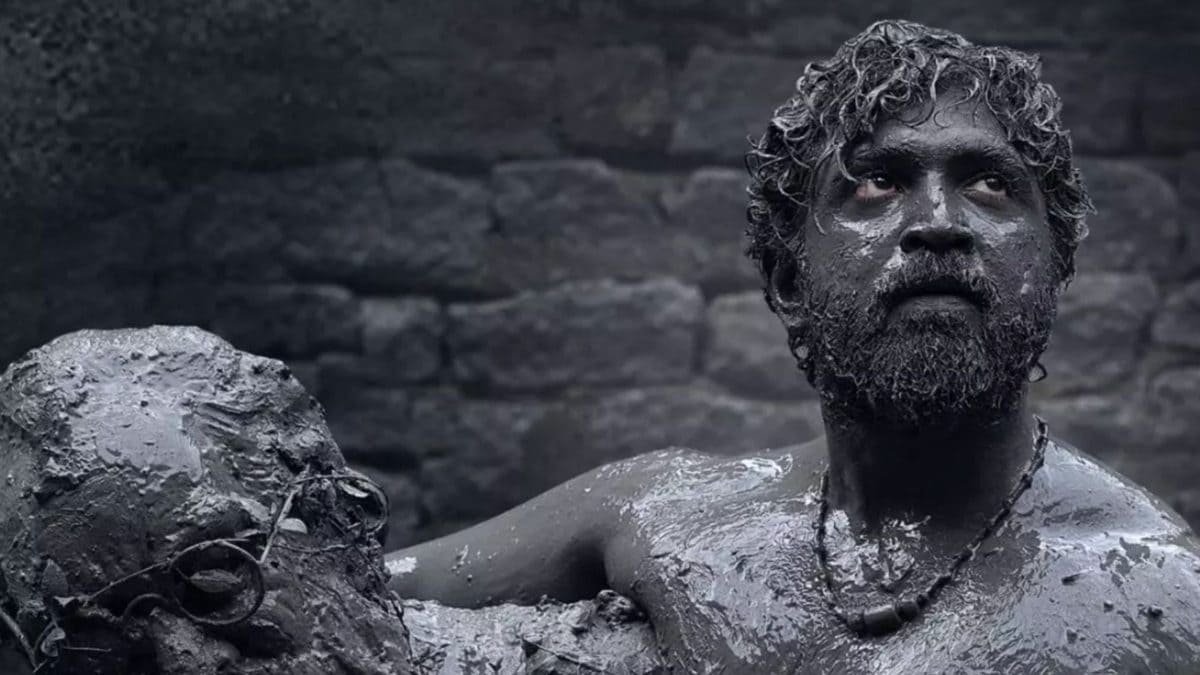[ad_1]
Last Updated:
Shockingly, Vanangaan, starring Arun Vijay, a revenge drama about a protagonist on a hunt for three perverts, ends up catering to their gaze.

Vanangaan stars Arun Vijay in the lead.
VanangaanU/A
2/5
Starring: Arun Vijay, Roshini Prakash, Ridha, Samuthirakani, MysskinDirector: Bala
Vanangaan is another addition to Bala’s list of tragedies that make the audience leave the theatre with a heavy heart. Above all, make them wonder: “Why does Bala do it every single time?” Perhaps, he aims to jolt the everyday people and show them the devastating side of life they choose to ignore. That’s why Bala’s protagonists are strangers. They don’t conform to the ways which are termed ‘normal’. Almost all of his protagonists – Pithamagan’s Chithan, Nandha, and Naan Kadavul’s Rudran–are taciturn and choose to interact less with society as their very existence is odd with the society they live in.
Set in Kanyakumari, Vanangaan is about one such anomaly named Koti (Arun Vijay), a deaf and dumb ruffian, who is depicted as this beast with a heart.
Koti does odd jobs for a living and supports his sister Devi (Ridha). He beats up his love interest Tina (Roshini Prakash) black and blue only to find her come back to him to get more thrashing. Violence seems to be their love language. Tina candidly says that she has been getting this beating since childhood. She seems to enjoy it. If you are to wonder what she sees in him. It could be his authenticity. Koti doesn’t play by the rules. When he finds a bunch of drunkards misbehaving with transgender people, he beats them to a pulp. They run into a police station, but that doesn’t stop Koti. He roughs up the police constables who try to stop him. A pastor and a lawyer always seem to be around to help Koti out as they also see the good side of this brute force.
One thing is obvious within a few minutes into the film: Bala comes across as a different director in Vanangaan as you see him having an introduction shot to his hero, who emerges from an abandoned well, drenched in mud slush, carrying idols of Periyaar and Ganesha. The symbolism notwithstanding, this was out of place in Bala’s film. The director, who doesn’t play by the rules like his heroes, seems to have given in. Another issue with Vanagaan is the patchy and disjointed nature of the film. From an introduction scene of the hero, it moves to an introdcution scene of the heroine, and we get a small interlude about a court judge that’s supposed to depict the nature of his character. Scenes jump from one sequence to another without any sense of continuity since the film doesn’t have much going for it till the arrival of the conflict.
And Bala takes his own time to arrive there. He wallows in depicting the lovable lives of his characters on the fringe of society. The plan is now to make you suffer by destroying their happiness. That has always been the alchemy of Bala’s success. He depicts a gloomy world wherein people still manage to find some happiness. The director then plunders that as well, leaving everyone in desperation. Bala aims for this catharsis. He passes on this trauma and pain of the downtrodden to everyone, and cinema is just his tool.
In Vanangaan, the conflict arises when Koti finds a job in an asylum for physically and mentally challenged kids. Three perverts sneak inside the restroom of blind kids and watch them bathe naked. When Koti finds this out, he goes on a killing spree and ends their lives in the most monstrous way possible. What happens to Koti when the guardians of law are unable to find the motive is what Vanangaan is all about.
However, in just one scene, Bala undoes even the little Vanangaan achieves. It is the way he frames the scene of the sexual crime. Shockingly, Bala chooses to reveal what the perverts are looking at. The gaze of the camera is utterly disturbing, making one turn away from the screen. The voyeuristic nature of the shot undercuts the whole intention of the movie. Bala ends up catering to the very demons he wants to slay. The intention of the unwarranted scene in a film about revenge against sexual violence is a painful irony. What was even Bala thinking?
[ad_2]
Source link
